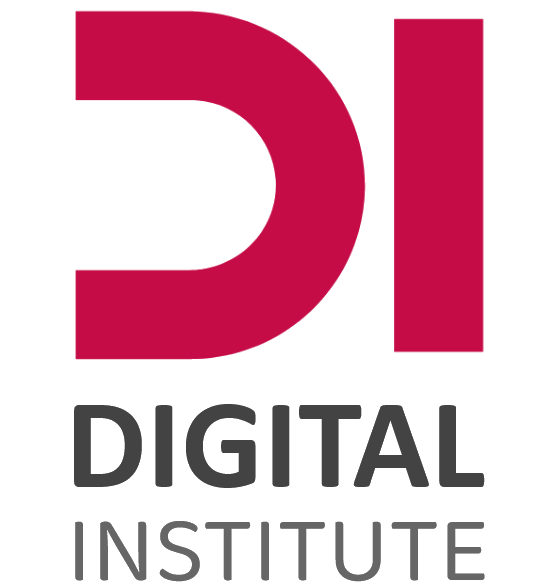Back

The Lab is an integral part of the Digital Institute, serving as the primary hub for conducting research related to the economic implications of digital technologies.

Digital Inclusion
The Digital Economy Lab brings together a group of researchers and experts to examine and develop new ways how digital technologies can transform workm organizations and the economy.The Lab is an integral part of the Digital Institute, serving as the primary hub for conducting research related to the economic implications of digital technologies.
How will digital technology will impact the economy this decade
Digital technologies have already had a significant impact on the digital economy and are expected to continue to shape its future. Here are some of the areas:TECHNOLOGY LEVEL
Machine Learning & Big Data
Generative AI & Large Language ModeIs
Blockchain & Distributed Ledger
Metaverse, XR and Digital Twins
Voice Interfaces & Chatbots
Intelligent/Smart Spaces
SaaS and Microservices
PLATFORM LEVEL
Cloud and Edge Computing
Mobile Networks (5G and 6G)
Wearable Technology
Personal Robots and Cobots
Computer Vision & Facial Recognition
Digital Dataspaces (Digital Identity, ...)
Central Bank Digital Currencies (CBDC's)
1) Artificial Intelligence (AI)
AI is already being widely used across various industries, and its importance is only expected to increase in the coming years. The ability of AI to analyze large amounts of data and make predictions based on that data makes it a powerful tool for businesses, healthcare, and other fields.
2) 5G Networks
The rollout of 5G networks is expected to transform the way we use the internet and mobile devices. With faster download and upload speeds and lower latency, 5G will enable new technologies like autonomous vehicles, remote surgery, and virtual reality to become a reality.
3) Internet of Things (IoT)IoT refers to the network of devices that are connected to the internet and can communicate with each other. With the proliferation of sensors and other connected devices, IoT is expected to play a major role in improving efficiency and automation in various industries.
4) Blockchain
Blockchain is a distributed ledger technology that can be used to securely store and transfer information. It has the potential to transform industries like finance, supply chain, and healthcare by reducing fraud and increasing transparency.
5) Cloud and Computing
Cloud computing enables businesses to store and access data and applications over the internet, without the need for on-premise hardware. The scalability and cost-effectiveness of cloud computing make it a popular choice for businesses of all sizes.
6) Extended Reality (XR)
XR refers to the combination of virtual reality (VR), augmented reality (AR), and mixed reality (MR). With the development of more advanced hardware and software, XR is expected to play a major role in entertainment, education, and training in the coming years.
Overall, these digital technologies are expected to have a significant impact on various industries and society as a whole in the coming decade.
Sectors most impacted by AI in this decade
Healthcare
AI can improve disease detection, diagnosis, treatment planning, and patient monitoring. It can also help reduce medical errors, optimize resource utilization, and lower healthcare costs.
Financial Services
AI can automate repetitive tasks, detect fraud and cybercrime, personalize financial services, and provide data-driven investment recommendations.
Education
AI can personalize learning experiences, provide individualized feedback, and enhance student performance analysis.
Manufacturing
AI can optimize production processes, reduce downtime, and enhance quality control.
Retail and e-commerce
AI can improve personalized product recommendations, optimize pricing and inventory management, and enhance the customer experience through chatbots and virtual assistants.
Transportation
AI can optimize logistics, route planning, and maintenance schedules for vehicles, as well as enable autonomous driving.
Agriculture
AI can optimize crop management, reduce waste, and enhance crop yields through precision farming techniques. AI-powered robots can automate tasks such as planting, harvesting, and sorting crops, reducing labor costs and improving efficiency. AI can help farming become more sustainable by analyzing environmental data, reducing waste and optimizing resource usage.
Science & Research
AI can automate time consuming tasks, analyze complex data sets, and discovering new patterns and insights. Ai can solo discover new drugs and help build more accurate models of complex systems, such as the human brain or climate systems.
Entertainment
AI can create personalized recommendations for movies, TV shows, music, and games. It also can enhance user experience, help with content creation and providing better insights into audience preferences.
Consulting Services
AI can improve the efficiency and accuracy of consulting services, providing better insights into data, and automating repetitive tasks. AI can also hep inform with strategic decision-making by analyzing data and identifying patterns. AI can also automate customer support by enabling chatbots to interact with customers.
Digital Academy
8 min 
Strategy
Guide
Digital, Product or Service: Pros & Cons
8 min 
Strategy
Super Guide
How To Validate a Business Idea
8 min 
Strategy
Super Guide
How to Present your Idea in a One-Page Business Plan
40 min 
Strategy
Super Guide
How to Create a Business Model
40 min 
Strategy
Super Guide
How to Create a Business Plan
19 min 
Marketing
Super Guide
Build an Online Business: The Complete Guide
5 min 
Strategy
Guide
Best Digital Resources for Entrepreneurs
8 min 
Strategy
Super Guide
Metrics to Measure Product-Market Fit
8 min 
Strategy
Super Guide
How to Develop a Digital Product or Service
8 min 
Strategy
Super Guide
How to Validate a Digital Product or Service

8 min 
Digital
Super Guide
How to Create Social Media Pages

8 min 
Digital
Super Guide
How to Monitor Site Health

8 min 
Digital
Super Guide
How to Analyze Statistics of your Site
8 min 
Digital
Super Guide
How to Create a Landing Page
4 min 
Marketing
Guide
How Videos Can Capture Attention and Boost Sales
40 min 
Marketing
Super Guide
How to Create a Podcast Marketing Strategy
40 min 
Strategy
Super Guide
How to build your Customer Persona
30 min 
Marketing
Super Guide
How to Create a Social Marketing Strategy
13 min 
Networking
Guide
The Complete Guide to Networking

8 min 
Networking
Super Guide
How to Follow Up on your Contacts and Opportunities
8 min 
Networking
Super Guide
Learn How to Present Yourself in Public

8 min 
Networking
Super Guide
Learn How to Speak in Public
6 min 
Digital
Super Guide
How to Present Yourself Online
8 min 
Marketing
Super Guide
How To Write Online Content

8 min 
Strategy
Super Guide
How to Create a Presentation for a Product or Service
4 min 
Strategy
Article
Why does your startup needs to be global?
6 min 
Strategy
Article
How to build a successful digital business model?
3 min 
Strategy
Article
How to scale your business sucessfully
6 min 
Strategy
Article
Digital Academy Program
3 min 
Marketing
Article
Building customer communities for effective marketing campaigns
3 min 
Marketing
Article
How to Build Social Media Presence
3 min 
Marketing
Article
5 Marketing Trends in 2022
3 min 
Marketing
Article
6 Marketing Challenges for your Company
6 min 
Networking
Article
Seven Golden Tips for Good Networking
6 min 
Networking
Article
Three things to keep in mind when networking
6 min 
Networking
Article
Best 10 Apps for Business Networking
6 min 
Networking
Article
Write a Personal Presentation

Strategy
Lesson

Strategy
Lesson

Strategy
Lesson

Strategy
Lesson
Achievements
Email Management
Task Management
Data Backup
Computer Tools
We are compiling more information. Our apologies.
Leadership
Time Management
Recruiting
Finantial Management
We are compiling more information. Our apologies.
Online Networking
Event Networking
Job & Career Networking
Corporate Networking
We are compiling more information. Our apologies.
Blog Management
Shop Building
Content Writing
SEO
We are compiling more information. Our apologies.
Content Marketing
Content Writing
Online Monetization
Email Marketing
We are compiling more information. Our apologies.
Responsiveness
Online Writing
Active Listening
Presentation
We are compiling more information. Our apologies.
Data Visualization
Databases
Artificial Intelligence
Data Tools
We are compiling more information. Our apologies.
No Information for this section yet. Our apologies.







